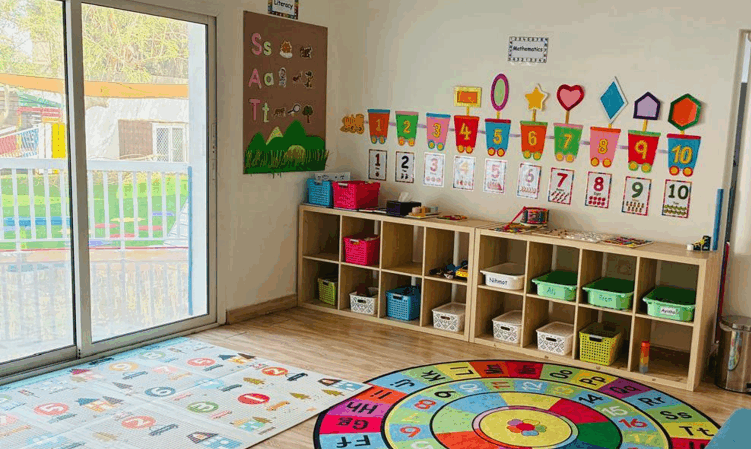
Affordable British Nursery isn’t just about academic readiness, it’s about nurturing values that last a lifetime. Teaching kindness is a core element of raising emotionally intelligent and socially responsible children. In a fast-paced world that increasingly values performance and competition, the importance of compassion, empathy, and emotional intelligence is often overlooked. Yet research shows that early childhood is a crucial window for developing social-emotional skills, and what children learn during these formative years lays the foundation for how they treat others and themselves for life.
As parents in the UAE look for meaningful early education options, choosing a nursery that values character-building as much as curriculum is key. At Little Learners, an affordable British nursery, we plant seeds of kindness in young hearts because those are the roots that grow lasting character.. Here, our teaching compassion helps to build confident, caring children ready for life.
Here’s why teaching kindness and compassion during the early years matters, and how you can help support this journey both at home and through the right early learning environment.
Why Kindness Matters in Early Childhood
Kindness may seem like a simple trait, but its impact is profound. Children who learn compassion early in life often develop:
- Stronger friendships
- Higher emotional intelligence
- Better conflict-resolution skills
- Greater self-esteem
Moreover, studies in child psychology confirm that children who practice empathy and generosity tend to be happier and more resilient. In essence, kindness is not only about treating others well; it’s about cultivating emotional strength and creating a positive ripple effect in classrooms, communities, and eventually, the world.
The UAE Context: Raising Emotionally Aware Children in a Diverse Society
We live in a multi-cultural environment in the UAE so teaching kindness carries even more weight. Children are exposed to peers from a wide variety of cultures, languages, and backgrounds. Learning compassion helps them navigate differences with respect and understanding skills that are essential in our globally connected world.
At Little Learners, the early years curriculum is designed to support both academic development and character education. British early years education frameworks such as the EYFS (Early Years Foundation Stage) encourage inclusive, respectful classroom environments where empathy is modelled and practiced daily.
How Nurseries Foster Kindness
1. Modelling Behaviour
Young children learn best through imitation. Educators at reputable nurseries demonstrate kindness in their own interactions be it resolving conflicts calmly, showing patience, or using positive reinforcement.
2. Storytelling & Role Play
Children’s literature is rich with stories about friendship, sharing, and empathy. Through guided reading and role-playing activities, children explore emotions and see the consequences of different behaviours.
3. Group Activities
Cooperative play, circle time, and group tasks help children build teamwork skills and understand the importance of taking turns, listening to others, and celebrating collective success.
4. Positive Reinforcement
Acknowledging kind acts such as sharing toys or comforting a peer helps reinforce those behaviours. Sticker charts, kindness walls, or small recognitions can go a long way in encouraging consistent compassion.
5. Diverse Classroom Practices
With UAE’s diverse population, nurseries often celebrate cultural and religious events from around the world. This promotes acceptance, curiosity, and empathy toward people who may be different from them.
How to Evaluate and Choose the Best Nursery for Your Child
- How does the nursery support emotional development?
- Are kindness, sharing, and empathy actively taught and encouraged?
- What training do educators have in social-emotional learning?
- Are behavioural issues handled with understanding and positive discipline?
Quality nurseries should view character development as equally important as literacy or numeracy skills. A child who knows how to express kindness and navigate relationships will carry those abilities through primary school and beyond.
Supporting Kindness at Home
A strong partnership between home and nursery enhances the development of kindness in children. Here are simple ways parents can reinforce compassionate behaviours at home:
- Let your child see you helping others, listening patiently, or speaking respectfully even when it’s hard.
- Help your child identify their feelings and understand others’ emotions by naming them—e.g., “I see you’re sad because your toy broke.”
- Encourage them when kids are considerate or generous through some gestures.
- Choose books that teach empathy, sharing, and respect.
- Regularly talk about things you’re thankful for to cultivate a positive, kind-hearted mindset.
The Long-Term Impact
The goal of early education is not limited to school preparedness but also preparing them for life struggles with kindness and love. Children who grow up in nurturing environments that value kindness tend to become thoughtful adults who contribute meaningfully to society. Whether they become doctors, engineers, artists, or entrepreneurs, the ability to empathize, collaborate, and care for others remains essential.
Take Away
Amid continuous change, kindness endures as a foundational value. The early years are the best time to plant the seeds of compassion, and with the right environment both at home and in a nursery where children flourish into empathetic, respectful individuals. For UAE parents seeking a nurturing, value-driven education, Little Learners, an affordable British nursery in UAE offers the perfect balance of quality learning and heart-centered growth. Because when it comes to raising kind kids, every small moment counts.

